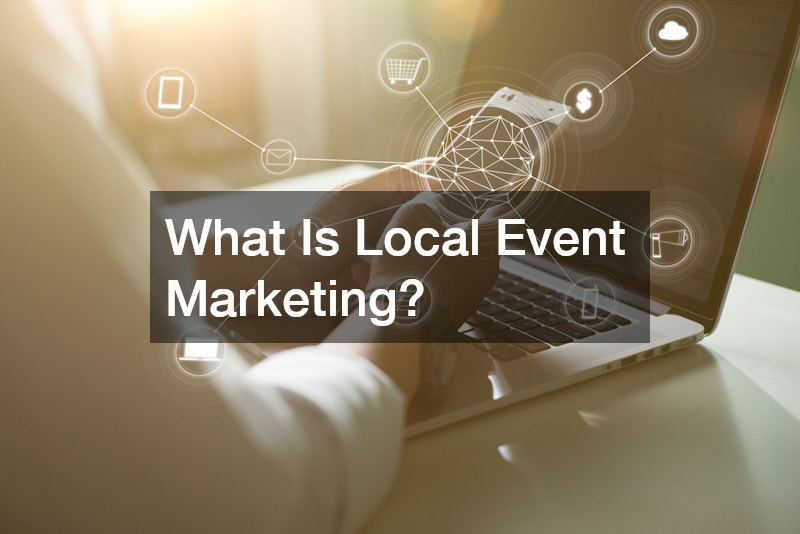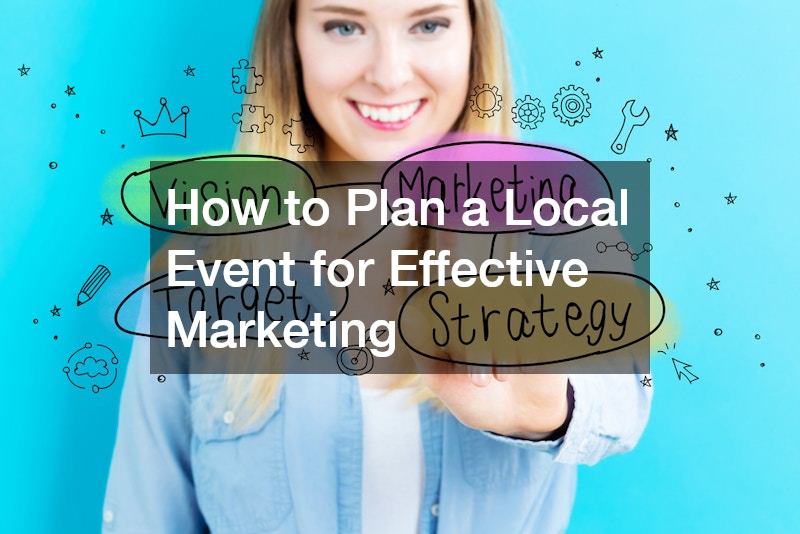Using Local Event Marketing to Promote Childcare and Youth Programs

In today’s competitive community landscape, childcare and youth programs must find innovative ways to attract attention, engage families, and build trust. Local event marketing offers a dynamic approach to achieving these goals by creating in-person experiences that connect directly with parents, children, and the broader community. Through thoughtfully planned events, programs can showcase their offerings, highlight unique features, and foster a sense of belonging among participants. Whether promoting a prep school, summer camps, or local childcare services, strategic events help cultivate visibility, credibility, and community engagement.
Local event marketing also allows organizations to utilize multiple channels simultaneously, from social media promotions to collaborations with local businesses. Events such as open houses, workshops, or family fun days provide hands-on opportunities for parents and children to interact with staff, explore facilities, and experience program offerings firsthand. Incorporating local vendors, like party rentals for festive setups, concert venues for performances, or embroidery shops for custom items, adds a professional and memorable touch. By prioritizing creative, interactive, and inclusive events, childcare and youth programs can build strong reputations, generate word-of-mouth referrals, and ensure long-term participation in their activities.
What Is Local Event Marketing?

Definition and Overview
Local event marketing refers to the strategy of promoting programs, services, or businesses through events hosted within a specific community. These events are designed to attract local audiences, providing a platform to engage potential clients, demonstrate offerings, and foster personal connections. Unlike digital-only marketing, local event marketing emphasizes face-to-face interaction, which can lead to deeper relationships and stronger brand recognition. For childcare programs, this might include open houses, interactive workshops, or small fairs showcasing educational and recreational activities.
Importance in the Community
Implementing local event marketing builds credibility and trust within the community. Families are more likely to consider programs that actively participate in or host community-oriented events. By showcasing facilities, staff, and program benefits, childcare centers and youth programs can provide tangible proof of their value. Local partnerships, such as collaborations with party rentals for fun setups, concert venues for performances, or banner printers for event signage, enhance the professionalism of the events and amplify outreach efforts. These efforts signal dedication, community involvement, and attention to detail, all of which resonate with parents seeking trustworthy options for their children.
Examples of Local Event Marketing
Examples of effective local event marketing include family fun days at a prep school, summer camp open houses featuring crafts and sports demonstrations, and interactive childcare fairs where parents can ask questions and tour facilities. Programs might partner with local embroidery shops or screen printing businesses to create branded giveaways or custom items for attendees. Paper supplies can be used for creative activities, while live performances at a concert venue or community center draw larger audiences.
How Can Local Events Benefit Childcare and Youth Programs?
Building Community Connections
Local events serve as a bridge between programs and their communities. By hosting workshops, sports activities, or fun fairs, programs can introduce staff and offerings to families in an approachable, personal manner. Collaboration with local businesses like party rentals, banner printers, or paper supplies providers strengthens community ties and demonstrates commitment to supporting local commerce. These connections help programs become recognized community staples, encouraging referrals and repeated participation.
Increasing Awareness and Visibility
Well-planned events draw attention from parents, children, and the wider community, increasing awareness of childcare and youth programs. For example, hosting a family day at a concert venue or partnering with an embroidery shop to offer branded custom items creates memorable experiences that stick in attendees’ minds. Using screen printing for event t-shirts or posters ensures the program’s brand reaches beyond the event itself. Increased visibility translates to higher enrollment, stronger word-of-mouth, and ongoing community recognition.
Engaging Potential Participants and Parents
Interactive events allow prospective participants and their families to actively engage with programs. Hands-on workshops, summer camp demonstrations, and open houses provide insight into curriculum, staff, and facilities. Programs can highlight offerings like best summer camps, structured extracurricular activities, or specialized childcare options.
What Types of Events Work Best for Marketing Childcare Programs?
Fun Fairs and Family Days
Fun fairs and family-oriented events attract a wide audience while creating a relaxed, enjoyable environment for parents and children. Adding elements like party rentals for games, bounce houses, or tents enhances the experience, while local food vendors and custom items encourage participation. Such events provide opportunities to introduce programs like prep schools, summer camps, or childcare centers to families in a hands-on, engaging way.
Workshops and Open Houses
Workshops and open houses allow programs to showcase offerings in a structured yet interactive setting. Activities might include arts and crafts using paper supplies, personalized giveaways from embroidery shops, or skill-building sessions that align with curriculum goals. These settings also allow staff to demonstrate teaching methods, answer questions, and establish personal connections with families, positioning the program as both professional and approachable.
Sports and Recreational Activities
Sports clinics, mini-tournaments, or interactive games are effective for promoting physical education programs and youth engagement initiatives. Hosting events at local tennis programs, swimming classes, or even concert venues for larger performances can attract children with diverse interests. Incorporating athletic elements, while highlighting available resources, such as athletic footwear or custom items, encourages active participation and showcases the program’s commitment to well-rounded development.
How to Plan a Local Event for Effective Marketing

Setting Clear Objectives
Successful local event marketing begins with clear, measurable objectives. Programs should identify the goals of each event, such as increasing enrollment for a prep school, promoting summer camps, or introducing childcare services to new families. Objectives might include generating leads, enhancing brand awareness, or building community partnerships.
Choosing the Right Venue and Timing
Selecting the appropriate venue is crucial for maximizing attendance and creating the desired experience. Local concert venues, community centers, or school gyms can accommodate different types of events, from open houses to sports clinics. Timing should consider school schedules, holidays, and local community events to avoid conflicts and maximize attendance. Partnering with party rentals for tents, games, or staging enhances the environment and ensures logistical efficiency.
Budgeting and Resource Allocation
Budgeting is a critical step in planning a successful local marketing event. Allocating resources wisely ensures that programs can invest in essentials like marketing materials, custom items, party rentals, or refreshments without overspending. Programs should also consider partnerships with local vendors, such as banner printers or embroidery shops, which can provide cost-effective solutions for branding and event decoration. Efficient resource allocation allows organizers to balance quality and cost, ensuring events leave a positive, lasting impression on attendees while staying within financial constraints.
What Marketing Channels Should Be Used to Promote Local Events?
Social Media Strategies
Social media platforms are powerful tools for promoting local event marketing initiatives. Programs can use Facebook, Instagram, and Twitter to share announcements, countdowns, and behind-the-scenes content, creating excitement and anticipation. Visual content featuring paper supplies, custom items, or interactive activities like swimming classes and local tennis programs can capture attention and encourage sharing.
Community Partnerships and Collaborations
Collaborating with local businesses strengthens promotion and expands outreach. Partnering with party rentals, screen printing shops, or embroidery services for event sponsorships can enhance resources and visibility. Community collaborations, such as working with concert venues or paper supply stores, allow programs to tap into established customer bases and build credibility. These partnerships create a mutually beneficial environment, where both the program and local vendors gain exposure and strengthen their connection to the community.
Traditional Marketing Approaches
While digital promotion is important, traditional marketing methods remain valuable for local event marketing. Flyers, posters, and banners distributed through community hubs, prep schools, and childcare centers help reach families who may not engage online. Using banner printers for high-quality signage ensures professional presentation.
How to Engage Local Businesses and Organizations in Events
Benefits of Partnerships
Engaging local businesses enhances local event marketing by leveraging shared resources, expertise, and networks. Collaborations with embroidery shops, screen printing companies, or party rentals allow programs to offer branded merchandise, interactive activities, and professional setups. These partnerships create mutually beneficial outcomes, helping programs increase visibility while local vendors showcase their services.
Approaching Local Businesses
When reaching out to businesses, programs should highlight the benefits of collaboration, such as exposure to target audiences and potential revenue opportunities. Tailoring proposals for specific vendors, including concert venues, banner printers, or paper supply stores, demonstrates preparation and professionalism. Clear communication regarding expectations, roles, and benefits encourages buy-in and fosters long-term relationships.
Collaborating for Mutual Benefits
Successful partnerships focus on reciprocity. Programs can offer co-branding opportunities, recognition in marketing materials, and social media shout-outs, while businesses provide products, services, or expertise. For example, party rentals may supply equipment, embroidery shops can create custom items for giveaways, and screen printing companies can provide event merchandise.
What Are Some Common Challenges in Local Event Marketing?

Limited Resources and Budget Constraints
Many programs face limited budgets and staffing for local event marketing. Allocating funds to essentials like venue rental, party rentals, custom items, and promotional materials requires careful planning. Prioritizing high-impact elements, partnering with local businesses, and seeking sponsorships can help overcome these challenges while maintaining event quality.
Competition from Other Events
Scheduling conflicts with other community events or school activities may impact attendance. Programs must research local calendars, avoid competing dates, and differentiate events by offering unique experiences such as hands-on workshops, themed activities, or performances at concert venues. Effective promotion highlighting these unique offerings attracts participants despite competing options.
Weather and Location Issues
Outdoor events face challenges from weather, accessibility, and logistics. Contingency planning, including backup indoor venues, party rentals for tents, or scheduling during favorable seasons, ensures events proceed smoothly. Thoughtful consideration of location, parking, and accessibility improves participant experience and reinforces the program’s professionalism.
How to Measure the Success of Local Marketing Events
Defining Success Metrics
Establishing measurable goals allows programs to evaluate local event marketing effectiveness. Metrics may include attendance, social media engagement, sign-ups for prep school, summer camp, or a childcare program, and participant feedback. Tracking interactions with custom items, banner printers, or paper supply giveaways provides additional insights into audience engagement.
Collecting Feedback from Participants
Surveys, comment cards, or digital feedback tools capture participant impressions, satisfaction, and suggestions. Understanding what parents and children valued most informs future event planning and highlights areas for improvement. Feedback also helps programs evaluate the impact of partnerships with local vendors, such as embroidery shops or screen printing services.
Analyzing Data and Insights
Compiling data from attendance, engagement, and feedback allows programs to identify trends, strengths, and areas needing improvement. Analyzing social media metrics alongside in-person interactions helps refine marketing strategies, optimize resource allocation, and enhance the overall effectiveness of local event marketing.
What Are the Best Follow-Up Strategies After an Event
Sending Thank You Notes
Expressing gratitude to attendees, partners, and sponsors strengthens relationships and fosters goodwill. Personalized thank-you notes or emails can acknowledge participation in events promoting prep schools, summer camps, or childcare programs. Including highlights from the event, photos, or references to custom items and screen printing giveaways reinforces positive impressions. Thoughtful follow-up demonstrates professionalism and shows participants that their engagement is valued, increasing the likelihood of future attendance and ongoing community support.
Sharing Event Recaps on Social Media
Posting recaps and highlights of events on social media platforms extends the reach of local event marketing efforts. Sharing photos from party rentals setups, concert venues, or interactive activities like swimming classes and local tennis programs allows families who could not attend to feel involved. Tagging vendors such as banner printers, embroidery shops, or paper supply companies promotes community collaboration and showcases the program’s network. Recaps provide additional exposure and create momentum for upcoming events.
Engaging New Contacts and Building Relationships
Events generate new contacts, including families interested in childcare, prep schools, or summer camps. Programs should maintain communication through newsletters, invitations to future events, or personalized follow-ups. Engaging these contacts promptly builds trust and encourages long-term relationships. Incorporating resources from local businesses, such as custom items or screen printing giveaways, enhances engagement and demonstrates a commitment to community partnership, maximizing the effectiveness of local event marketing efforts.
How to Sustain Engagement After the Event

Creating a Community Newsletter
Newsletters provide a structured way to maintain ongoing communication with participants. Programs can share information about upcoming events, enrollment opportunities for prep schools, or activities like adult swim lessons and local tennis programs. Highlighting successes, sharing tips, or featuring collaborative partners such as embroidery shops, paper supplies providers, or party rentals keeps families informed and engaged. Regular newsletters reinforce brand presence and foster loyalty among attendees, enhancing the long-term impact of local event marketing.
Inviting to Future Events and Programs
Proactively inviting attendees to upcoming events ensures continued engagement and reinforces community connections. Whether promoting the best summer camps, childcare programs, or interactive workshops, clear and timely invitations encourage participation. Leveraging partnerships with concert venues, screen printing services, or banner printers for signage and promotional materials enhances the appeal of future events and supports local business collaboration.
Utilizing Online Platforms for Continued Interaction
Online platforms, including social media groups, event apps, or private forums, provide spaces for families to interact, share experiences, and stay informed about programs. Virtual engagement reinforces in-person interactions, promotes networking, and encourages participation in future events. Integrating content from local event marketing initiatives, such as photos, updates, and highlights from custom items or party rental setups, keeps the community connected and invested in program success.
Conclusion
Local event marketing offers a powerful approach for promoting childcare and youth programs while fostering community engagement. By strategically planning events, utilizing diverse marketing channels, and collaborating with local businesses such as party rentals, embroidery shops, and screen printing services, programs can maximize visibility and attract new participants. Incorporating elements like prep school tours, best summer camps, swimming classes, or local tennis programs adds value and creates memorable experiences for families.